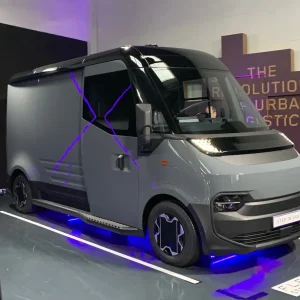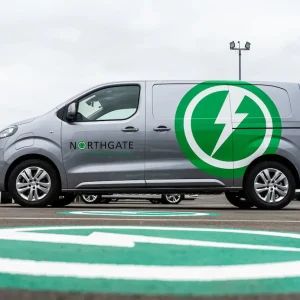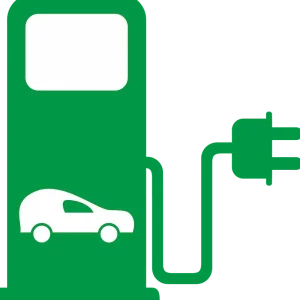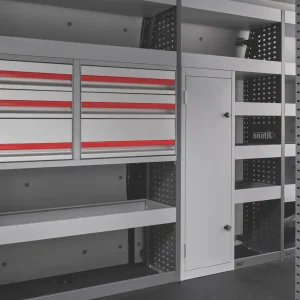 A major dealer chain with a presence in several large cities including London, Birmingham, Manchester, Liverpool, Cardiff and Leicester, Renault Retail Group is owned by Renault itself and sells thousands of Renault light commercials annually as well as cars. How many dealerships do you operate?
A major dealer chain with a presence in several large cities including London, Birmingham, Manchester, Liverpool, Cardiff and Leicester, Renault Retail Group is owned by Renault itself and sells thousands of Renault light commercials annually as well as cars. How many dealerships do you operate?
We've got 23 plus a couple of service points. We run eight bodyshops and our group also includes six business centres that target key fleets, including contract hire companies and local councils. Each of our dealerships employs a dedicated van salesperson plus at least one person with the ability to cover for them if they're out visiting a customer.
How many light commercials did you sell in 2007?
We sold 5,500, about 28 per cent of Renault's total LCV volume in the UK. What we did towards the end of last year and the start of this year is put a new van centre concept into place in the light of research carried out among our light commercial customers. It's based on a pilot project we've run successfully at our site in west London and we're currently rolling it out across eight branches. We're planning to roll it out across a further ten during the second half of this year.
What benefits does this concept offer the customer?
A van is a working tool and if it breaks down then we will look at it immediately, diagnose the fault within 24 hours and aim to repair it within the next five working days. We give an estimated price for repairs, a firm price for a service — we accept service appointments at short notice — and always consult the customer first if any unplanned work is required. The quality of all the work we do is rigourously checked and we call customers within 48 hours of their visit to our dealership to make sure they are happy. We can make replacement vehicles available to keep our customers mobile — we've got rental operations at a number of our sites, which makes things easier — and each centre employs individuals who act as direct points of contact for light commercial operators. If a van is in the workshop being repaired then they can update them about its progress. In some cases our centres have separate van service receptions and receptionists. If the way in which the building is laid out doesn't allow this, then what we'll sometimes do is combine the van reception with the reception area for the Renault Minute fast-fit operation.
What else can you offer?
As well as all-makes servicing and repair — we're aiming to increase the number of servicing packages we sell — we carry out Class VII MoT tests and offer collection and delivery. One of the things that we're thinking of doing is taking replacement vehicles out to people who require them because their own van has got to go into the workshop.
 Do you offer extended workshop opening hours?
Do you offer extended workshop opening hours?
Yes, but the situation varies from site to site and in line with customer requirements. At our dealership in west London, for example, we've been opening the workshop at 6am and finishing at 8pm. We've got six bays there dedicated to light commercials in a separate unit. The reception closes at 6pm, but you can drop your van off with the security guard during the night so that it's ready to be worked on the next morning. At present we're looking to see how customer demand for longer opening hours evolves. We've certainly not done everything in this area of activity that we intend to do.
Would you consider opening workshops round the clock?
We've certainly looked at it, and it may be necessary at some locations; necessary if only because some of our sites are expensive to run and we need to sweat the asset. It's difficult to organise though because of the way in which you have to juggle human resources.
What's been the reaction of customers to extended workshop opening hours in west London?
It's been extremely well received. The van workshop is achieving high customer satisfaction scores and is generating a lot of loyalty among van owners; and they're not just bringing Renaults in either. Other makes are being maintained there too. Remember that, depending on the agreement that's being negotiated, our van labour rates may be lower than car labour rates. It's worth noting by the way that because of the size of our network if, say, the west London workshop is booked out and the customer has a problem that urgently needs resolving, then we have the flexibility to switch the van to, for example, our Slough dealership and get the work done there.
How difficult is it to recruit and retain technicians?
It's not particularly easy. Fortunately we have access to a good training programme through Renault and what we find is that if you get a good group of van technicians working together, you also get a high level of staff loyalty. That in turn generates a healthy level of customer loyalty.
 So far as sales are concerned, do you display vans in your showrooms?
So far as sales are concerned, do you display vans in your showrooms?
In general we don't have sites with showrooms that are large enough to show the entire range, but we'll often display at least one light commercial in a showroom and place others in an outside display. At two or three locations we have enough room to show conversions as well as the rest of the range. What we really like to do as much as possible is take vehicles out to individual customers and we also exhibit vans at locations such as markets.
Which model is your biggest seller?
Trafic. It accounts for around half of our volume — we're looking at eight week lead times at the moment — but Master has been selling strongly of late too. Kangoo is of course on run-out at present.
The new Kangoo and Kangoo Compact, its smaller stable-mate, will arrive later this year. But what about second-hand sales across the entire Renault range?
We carry a stock of around 350 to 500 used light commercials and the vast majority are 12 to 24 months old. Some of the vans come from our rental fleet and they will be no more than six months old. They will nonetheless have undergone a good level of depreciation and that's obviously of interest to the used buyer. An ex-rental vehicle may have a fair amount of miles on it — maybe as many as 30,000 miles. On average our used vehicles have covered from 20,000 to 40,000 miles and virtually all of them will be covered by the unexpired portion of the manufacturer's warranty.
How do you handle part-exchanges which may have clocked up significantly more miles than that, could be five to six years old or even older, and endured a hard life?
In some cases we'll dispose of them through our all-makes Autoworld used vehicle supermarket site in Willenhall near Wolverhampton. Autoworld gets first choice of whatever we take in. Alternatively they may be traded out, or sent to auction.
Would you be happy to sell, say, a second-hand Ford Transit from one of your dealerships?
We wouldn't be averse to it and in fact we sometimes do; but it's a rare occurrence. It will probably be a vehicle taken in part-exchange and as a consequence may not meet our age or mileage profile. Remember too that unless that Transit is sitting at the front of a dealership, or it's on our web site, buyers won't come in to look at it. What they'll be looking for is used Renaults. Each of our dealerships, incidentally, has access to used vehicles held at all the other dealerships in the group, so if a customer in London is interested in a van that he or she has seen on our web site that happens to be in Leicester, then we can arrange for it to be delivered down to London.
What with the credit crunch, rising food costs, collapsing house prices and extortionate diesel prices thanks to high tax levels all having an impact on the economy, what do you think will happen to new light commercial sales during the rest of this year?
In our view the market is holding up very well. OK, some of the macro-economic factors you've mentioned may start to affect large corporate buyers; but I don't think they will seriously hit van sales.





